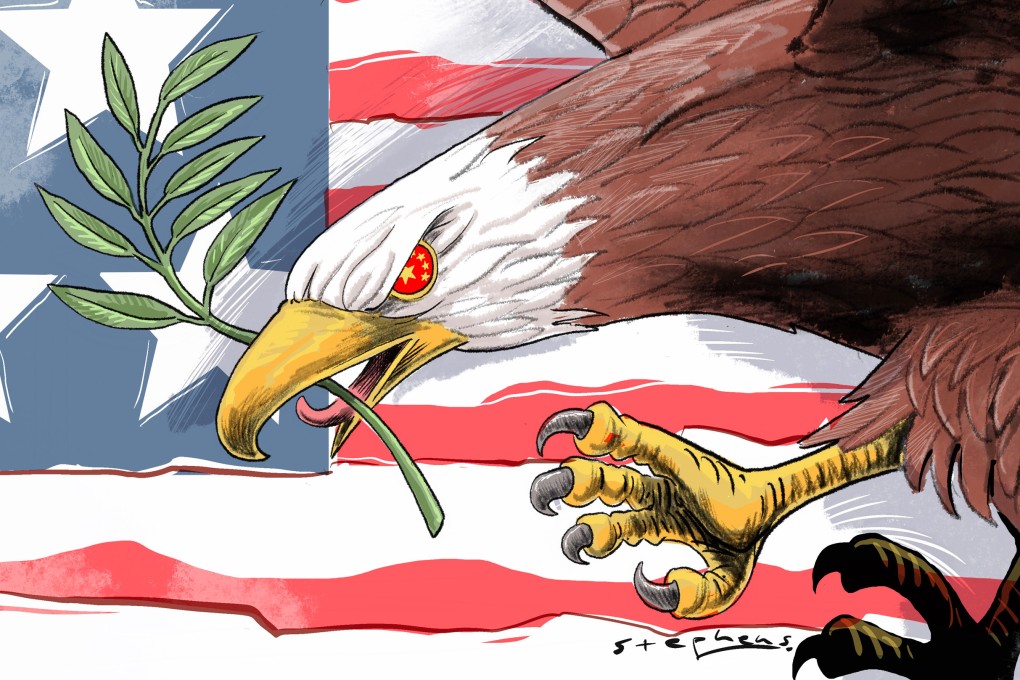Advertisement
Opinion | As US-China rivalry intensifies, Beijing has no illusions about Washington’s olive branch
- For all the diplomatic overtures, and talk of de-risking and not decoupling, the US continues to corral allies and treat China as a threat
- It may take years for the US national psyche to accept the legitimacy of a non-Caucasian, ancient civilisation with a different political ideology sharing global power
Reading Time:4 minutes
Why you can trust SCMP
29

Last month, US President Joe Biden said US-China relations would “thaw” very soon. Then US Defence Secretary Lloyd Austin tried and failed to secure a meeting with his Chinese counterpart at the recent Shangri-La security forum in Singapore. Now US Secretary of State Antony Blinken expects to visit Beijing on June 18, after a trip planned for February was derailed by the Chinese balloon incident.
Advertisement
Does this eagerness to mend fences suggest the United States is willing to compromise when it comes to China’s “core interests”, including Taiwan, for the sake of harmonious coexistence?
Not so fast. There remains robust bipartisan support for an all-out, grand American strategy to triumph over a perceived China threat to the US-led “liberal world order” that was consolidated after World War II. Jonathan Ward’s new book The Decisive Decade explains why this existential battle is now or never, and would include an anti-China “arsenal of democracy” in four arenas: economic, diplomatic, military and ideological.
Disregarding China’s warnings, moves are afoot to create a Nato presence in the Asia-Pacific. The transatlantic security alliance is already partners with Japan and South Korea, and has overlap with the Quadrilateral Security Dialogue, whose members include the US, Australia, Japan and India.
And while China has proven its economic resilience as the world’s largest manufacturer, this also means it is deeply embedded in global supply and value chains, including, critically, for rare earths. The US-led anti-China rhetoric may have shifted from “decoupling” to “de-risking”, but continues to focus on “strategic” technologies like high-end semiconductor chips and 5G. There is no let-up in the treatment of a rising China as a threat.
Advertisement
The US has weaponised the dollar to impose sanctions across the globe and this has boomeranged, as expounded in Agathe Demarais’ Backfire: How Sanctions Reshape the World Against US Interests. There is a strong de-dollarisation undercurrent among developing country groupings, such as BRICS (Brazil, Russia, India, China, South Africa) and the Shanghai Cooperation Organisation – not to mention China’s rapidly developing digital yuan as an alternative for international trade.

Advertisement
